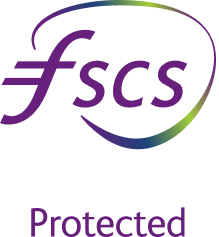Savings terms explained
AER stands for Annual Equivalent Rate and shows what the interest rate would be if interest were paid and added to your account each year.
Business day is usually Monday to Friday excluding bank holidays.
Calculated daily means the interest earned is based on the amount of money in your account at the end of each business day
Calendar month means from midnight on the first day of a month to 11.59:59pm on the last day of the month.
Fixed interest means the rate stays the same until the account matures.
Gross is the rate of interest payable before any tax is taken off.
Tax-free means you will not pay any tax on your interest.
Tax year runs from 6 April to 5 April.
Variable interest means that it could go up or down.
Please note: any reference to tax is based on our understanding of current tax regulations which may change in the future and depend on the customer's individual financial circumstances.
The Co-operative Bank reserves the right to decline or accept any application and/or deposit.



